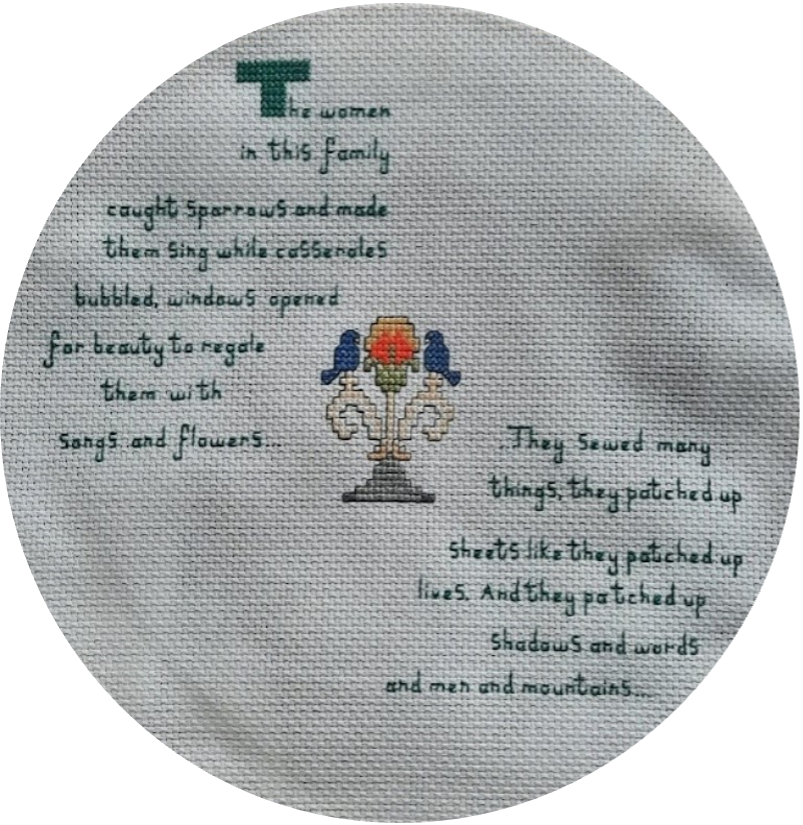What is the link between pop artist Andy Warhol, contemporary Catalan poet Dolors Miquel, and intersemiotic translation? The answer may well be excess.
Not a hedonistic, or overtly indulgent excess, but rather the excess of meaning which is found commonly in poetic language as well as in mimetic pop art (think Warhol’s Brillo Boxes, which aren’t really Brillo boxes at all). It is exactly this I wanted to capture in my feminist, and intersemiotic, translation of ‘Corsdepardal’ (‘Sparrowhearts’) by Dolors Miquel (the poem has an existing translation in text by Mary Ann Newman).
Intersemiotic translation is a process of the transfer of meaning between, or the synthesis of two or more, different sign systems, and has been recognised in recent publications as a creative act. Interested in how this type of translation can be harnessed for feminist objectives since I first started my PhD, the opportunity to create an intersemiotic translation for a book launch in March led me to consider the role of (what I’ll dub) the Target Medium (TM) as linguistic signifier in itself.
I wanted this translation to draw attention to the domestic arts (often demoted to crafts in the, male-protagonized and commercial, art world), which saw their cultural renaissance first during the Arts and Crafts period of the late nineteenth century, and later within the textile art produced during the second wave of Western feminism close to a century later. The production of such artwork was particularly popular among women artists, including Judy Chicago, Tracey Emin and Louise Bourgeois. Textile art lends itself well as the TM for this translation, not only because of the content of the poem, but also the way this particular medium is capable of representing the feminine world created in the text.
‘Sparrowhearts’ by Dolors Miquel is a poem which pays homage to the work of women in the home. In this text, Miquel’s idiosyncratic style elucidates their unseen work in a way that is at once ludic and doctrinal, establishing a set of rules, or code, for the life of a woman. Excess could also be readily applied to the poetry of Dolors Miquel: her language is heavily infused with wordplay that goes several layers deep, a rich lexicon that permeates both higher and lower registers, and serial repetitions of words in different configurations.
‘… They sewed so many things: they stitched sheets like
they stitched up lives. And they stitched up shadows and words and
men and mountains…’(translation my own).
Sewing is at once an act of puncturing and mending and thread is often imbued with a narrative quality. To spin a yarn is to tell an enthralling, if completely fantastical, tale; to lose the thread of an argument is to cease to maintain the connection between one point and another. Women, as the keepers of the domestic, needlework and reproductive realms, therefore, are the ones who ensure the continuation of folklore and narrative. At once creative and destructive, opening and healing, therefore, sewing can serve as a metaphor for writing and re-writing; in this poem the women in the author’s family have agency over their history.
Intersemiotic translation, by opening up the Target Text to multiplicity – excess – in meaning through the very medium used, is one strategy that I believe is apt for use by feminist translators. This is because it highlights the instability of equivalence in interlingual translations, and therefore does not subscribe to a language hierarchy. My intersemiotic translation aims to draw attention to the historically sidelined medium that inhabits the domestic and artistic spheres at once. Far from being an end in itself, my piece of embroidery represents a point of departure in my investigation into the intersection of decorative art and activism through a feminist lens.
Beth Caygill, Queen Mary, University of London
Pictured: ‘Sparrowhearts’, an intersemiotic translation.
